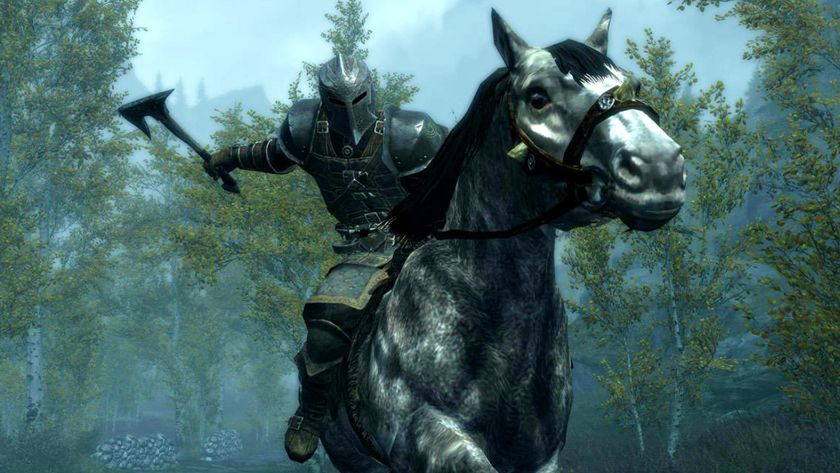Final Fantasy 7 Rebirth's Yoshinori Kitase and Naoki Hamaguchi: "You can learn a lot from The Empire Strikes Back"
Interview | The creators of one of next year's biggest games speak about how to update a classic, nail the second part of a trilogy, and leave fans wanting more
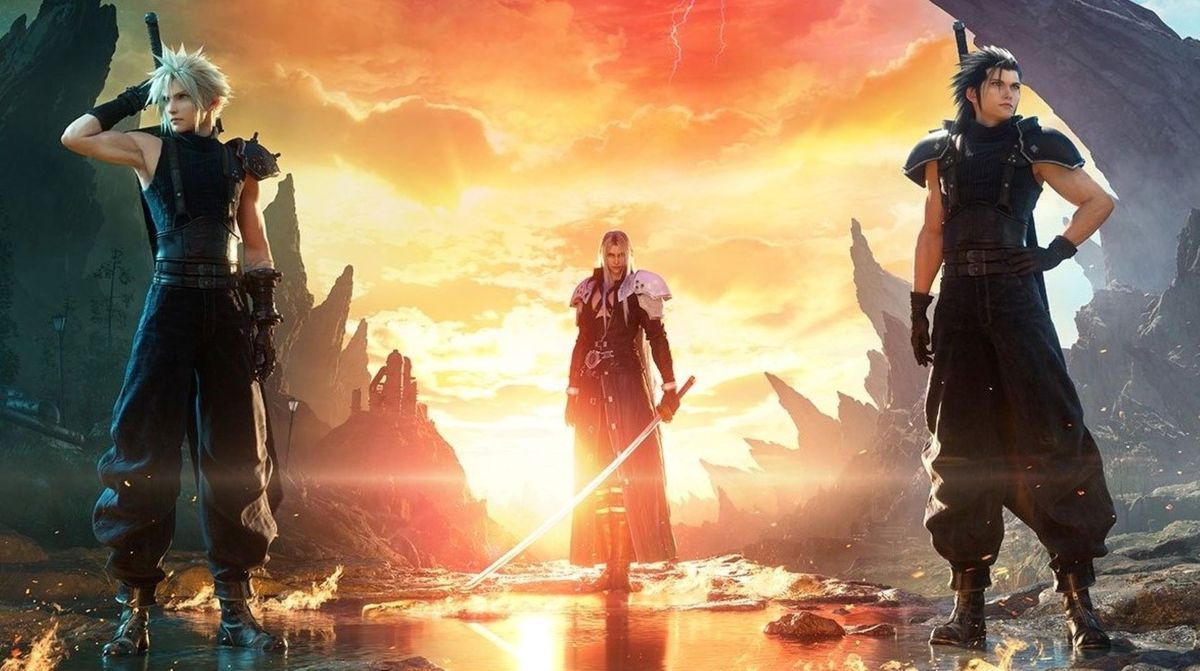
Final Fantasy 7 Rebirth doesn't launch until February 2024, but it's guaranteed to be one of the biggest games of the year ahead. Building on the success of 2020's Final Fantasy 7 Remake – yes, it really is almost four years since we last visited Cloud and company – and with anticipation for the upcoming sequel now at fever pitch, you'd be forgiven for thinking producer Yoshinori Kitase and director Naoki Hamaguchi's recent appearance at Paris Games Week was already something of a victory lap.
"We've done a number of fan events and signings here," Kitase-san tells GamesRadar at the end of the French games expo. "I think you really can feel that respect towards game creators [here]. A lot of people stay behind afterwards, and they really want to express how much they respect us and what we've made, and that's a bit of a different thing; we don't get that so much in Japan."
The next chapter
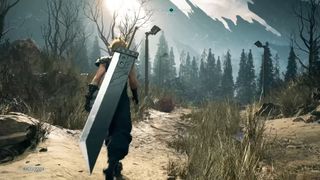

Final Fantasy 7 Rebirth's open world is inspired by The Witcher 3 and Horizon
It's perhaps little surprise that the pair are getting a rapturous welcome. They're helming the eagerly anticipated next chapter of a planned trilogy of games; remaking what, for many players across Europe, will have been the first Final Fantasy game they ever played. It's a legacy that Kitase, who directed the original, is all too aware of.
"The fact that it was their very first Final Fantasy really did leave a strong impression on people," Kitase says. "They've had those memories, and really cherished them, for over 20 years. There's a lot of expectation and we really can't disappoint or betray those fans with those expectations." Yet while Kitase and Hamaguchi agree on the importance of keeping the tone and the feel of 1997's Final Fantasy 7 intact, there was never any intention to do a straight remake of the original – suggesting recreating the original's most memorable moments would need to be done so in a "slightly different way".
Anyone who played Remake knows that those differences might not be so "slight" though. Without spoilers, the fates of certain characters have seemingly changed already, which could conceivably shift the direction of the entire story going forwards. Or at least, that's what many players expect – but the recent revelation that everything is still heading towards Advent Children throws everything up in the air. Just how much can the Remake trilogy change things if everything still has to ultimately line up with a movie from 2005?
"We are finally going to link up with Advent Children, that is going to be part of canon," Kitase confirms. "The overall storyline, the developments, will not go wildly out in a way that will not add up to Advent Children in the end. I don't think anyone wanted that, that's not what we're looking to create here. [But] to make sure it doesn't become stale and people know exactly where it's going, [that it] doesn't just follow the original word for word, we add in extra elements which add that little bit of doubt. Getting the right balance of that is so key. Ultimately, we're not trying to change the Final Fantasy 7 story into something really different. The overall balance wouldn't really allow for that anyway."
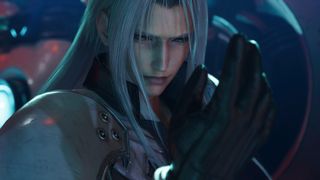
Advent Children isn't the only movie influencing Rebirth, though. Trilogies often face the 'middle chapter problem', where the second installment must build on the first, lead into the third, and somehow stand as a satisfying piece of entertainment in its own right. It's a notoriously difficult balance to strike, but one film in particular serves as almost a textbook example of how to do it right: The Empire Strikes Back.
Sign up to the 12DOVE Newsletter
Weekly digests, tales from the communities you love, and more
"There is a lot you can learn from that film in terms of how to do a second part of a trilogy well," says Kitase. "You've got the setup, the setting, the characters, who they are, all explained in the first part. The real role of a second part of a trilogy is to deepen that, explore it further, go into the relationships between the characters and how they relate to each other a lot more, which is very much what we focused on here."
"Also, linking through to the third part, the climax of the trilogy, obviously you have to have the big twists, the unexpected aspects, the things that will throw people a little bit, get them motivated to want to see what happens in the end of the story. Like I say, there's a lot you can learn from that film. It's very good to bear in mind in terms of the right way of going about the second part."
Much as Irvin Kershner took over from George Lucas to direct Empire, so too is Hamaguchi stepping up to 'full' director on Final Fantasy 7 Rebirth, after co-directing Remake with Tetsuya Nomura. You might think that would be daunting, but Hamaguchi dismisses the suggestion. "In terms of pressure, I don't really think there's a lot of that," he says. "In certain ways, it actually feels the same." Talk about confidence.
Explaining his own stance on the middle chapter problem, Hamaguchi says: "I think the way I'm approaching this game may be slightly different to Mr Kitase and his perceptions and ideas about the second part of a trilogy. I think unless there is that twist, that change, that step up over the first game, the big trap here is that people … get expectations of what the third part is going to be like. You don't want that [expectation] to become lower."
"If we don't add in those changes and ramp everything up and make it that bigger and wider experience, then people just think they know what's coming. I want to avoid that. We want people to keep wondering. That's very much how we have approached the change from Remake through to Rebirth, just making everything bigger, more expansive, deeper. I feel that's my mission as the director now, to really ensure that that's where the game goes. In terms of the change in my approach to it, I think that's what I'm very focused on for this second one."
Second coming
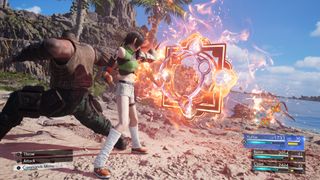
"Given the playable characters in Remake – Cloud, Aerith, Barret, and Tifa – each had their own unique battle styles, expanding the roster with party members boasting even more distinctive control schemes was a challenge."
Some of the biggest changes players will experience in Rebirth will affect the combat system, with the introduction of newly playable characters Red XIII and Cait Sith. While Red XIII debuted towards the end of Remake, he joined the party as a guest character, and couldn't be directly controlled.
Cait Sith, meanwhile, had only a cameo role in Remake, and now joins the team for the first time in Rebirth. Both will feature unique play styles that will impact how players approach the game, such as Red XIII's revenge gauge, which charges by guarding against enemy damage before retaliating with punishing counter-attacks.
Given the playable characters in Remake – Cloud, Aerith, Barret, and Tifa – each had their own unique battle styles, expanding the roster with party members boasting even more distinctive control schemes was a challenge. Have them feel too similar to each other, and they almost become redundant; too different, and switching between heroes might almost feel like switching between games with unrelated systems. On top of all that, the game needs to maintain the feel of the original cast.
"That's a really difficult thing to do," admits Hamaguchi. "We had to put a lot of effort into it, but was definitely something we had to do right. The core of this is, the characters from the first game [have] very much got fixed roles in combat. Cloud has to be a close combat character. Aerith has to be a magic character – and more of a ranged magic character, at that. Barrett, again, is another ranged combatant but also more like a tank and has to feel different from Aerith."
"People… got attached to those combat styles. We couldn't do anything to really mix them up or change them too much because otherwise people would say 'why do they feel wrong?' For example, we could never make Aerith a close combat character in this one. And then we've got to add in all of the new characters there, and make sure that they don't change that overall balance either and upset that. For Cait Sith and Red XIII, they had to be fitted in and made to work in their own way too. That was difficult – the more variables you use, the harder it gets."
Hamaguchi praises battle director Teruki Endo for getting everything working smoothly in Rebirth. "He was really good at that," he says, "and ultimately I think we did get a great balance there, so [Red XIII and Cait Sith] feel like they belong in this system. They don't feel out of place even though they are unique. They slot in really well."
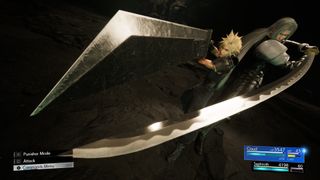

That's not to say the returning Remake cast don't get any love here. Hamaguchi explains: "We don't have to keep them exactly the same – we can, for example, within Cloud or Aerith, give them new mechanics, some new combat abilities, change them around slightly, as long as they still fit within that role as a close combat character or as a ranged character. If they feel like they still perform the same role, then even if they change a little bit, players will accept that."
Perhaps the biggest twist to Rebirth's combat is the introduction of 'Synergy Abilities', team-up attacks where any two characters can combine their skills for incredibly powerful assaults. It's an evolution of the system introduced in Final Fantasy 7 Episode INTERmission, the Remake DLC that introduced ninja spy Yuffie Kisaragi, ahead of her meeting the core cast in Rebirth. However, its origins were rooted in story and character development, more than a desire for a flashy new mechanic.
"The idea for the Synergy system came about when we completed Remake, before we went on to do Intergrade and INTERmission," Hamaguchi says. "Mr Nojima's first draft for the script, plotting out the second game for Rebirth, had already been produced. We were looking over that and seeing [that] in order to get to that scene with Aerith in the Forgotten Capital and make it dramatic and really work as a scene, we [need to] see the characters bonding with each other and growing to know each other [throughout the game]."
"I really thought we wanted to show that [bond] not just in the story sections and the other gameplay, but in the battles as well," Hamaguchi continues. "The idea for the synergy system is something which can reflect the overall theme of the storytelling in the battles."
Catalyst
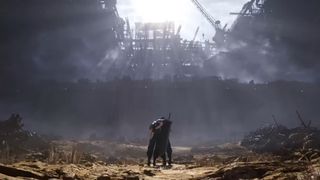
"Talking specifics about the battle system for the third game is something that we'll be talking about quite a way into the future - a lot of that is undecided"
Players can expect the battle system to continue to evolve in the still-untitled third game in the Remake trilogy, too. Not only will the cast expand further, with the addition of Vincent and Cid Highwind (who appear in Rebirth as guest characters much as Red XIII did in Remake; Hamaguchi says "we have to work out how they fit into that overall matrix now and work as combat characters – that's something we've started scratching our heads on recently!") but the creators will have to factor in response to Rebirth itself.
"Talking specifics about the battle system for the third game is something that we'll be talking about quite a way into the future - a lot of that is undecided," Hamaguchi says. "But the way I see my mission for the ongoing series is [that] I definitely want to add extra dimensions, evolve it, give it a new fresh feel, a new gameplay experience which isn't in this game. I really want to take everything to another level."
While Hamaguchi and Kitase alike remain tight-lipped on what to expect from the remainder of the Remake trilogy, there is, tragically, one important character who won't be returning: Hamaguchi's cat Musashi, who was snuck into Remake. "This is only in my head canon here," he says, "but personally I'd like to think that he was caught up in the Sector 7 plate fall with Jessie and that lot – he's probably not gonna turn up!"
Brutal – but unlikely to deter fans from rejoining Cloud and his allies' continuing journey when Final Fantasy 7 Rebirth arrives on PS5 on 29 February 2024.
Check out our list of the best RPGs you can (and should) play right now
Matt Kamen is a freelance journalist specialising in games, media, and technology. His work can be found online and in print for publications like Empire, Wired, GamesRadar, Newsarama, The Observer, and more.
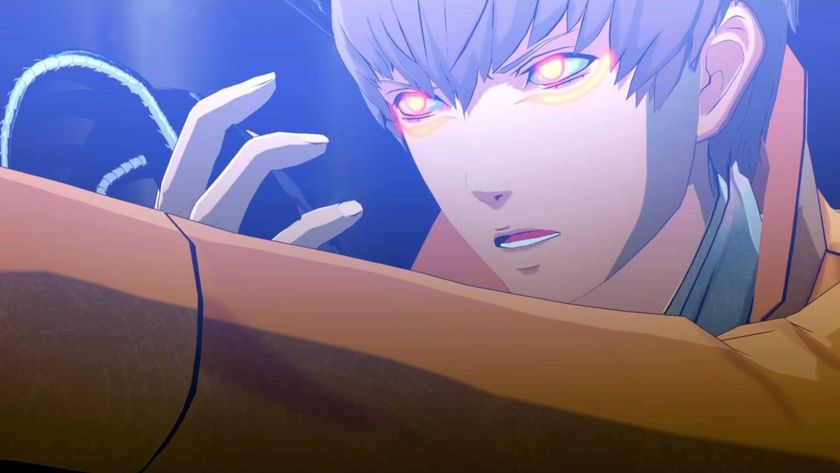
Metaphor: ReFantazio had to dial back an early battle system inspired by a notoriously brutal 2003 JRPG, because 20 years later, players found it "irrational" and "just not fun"

"Should JRPGs be considered a distinct genre?": Lunar icon Kei Shigema reflects on the genre with new remasters on the way and how RPGs have changed 33 years later
